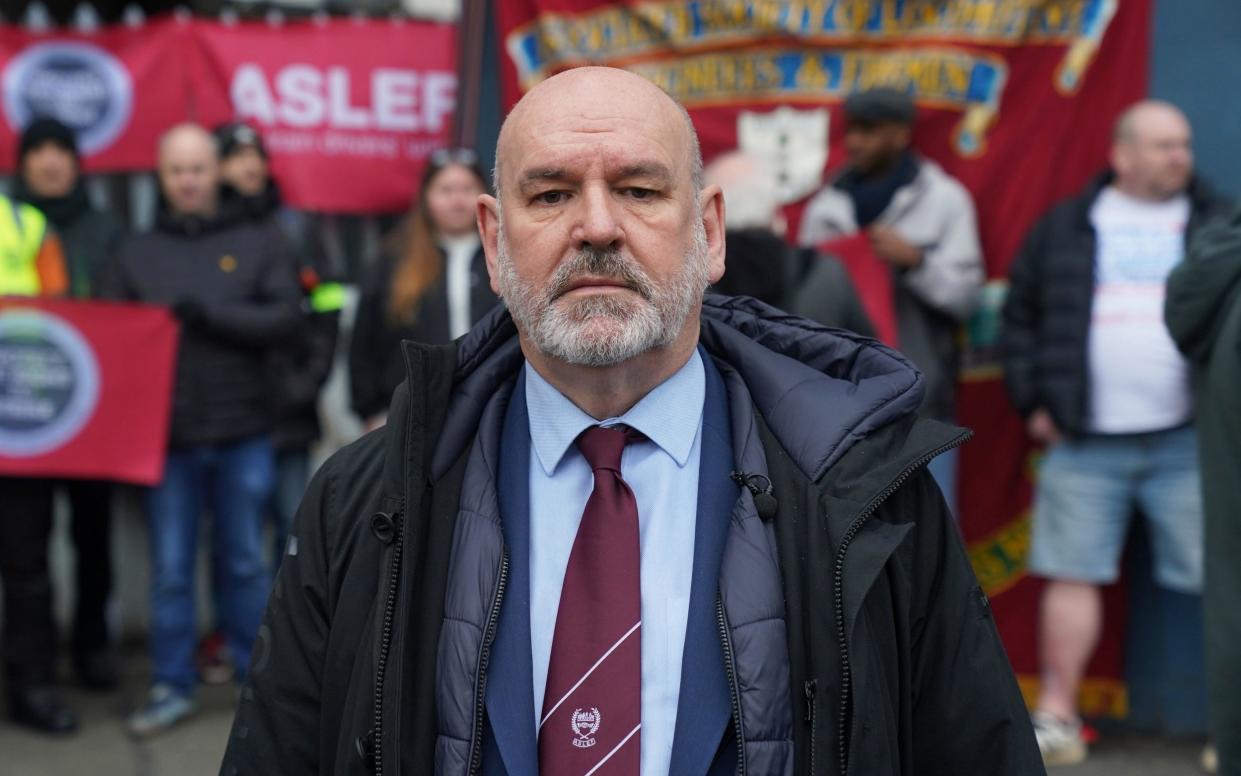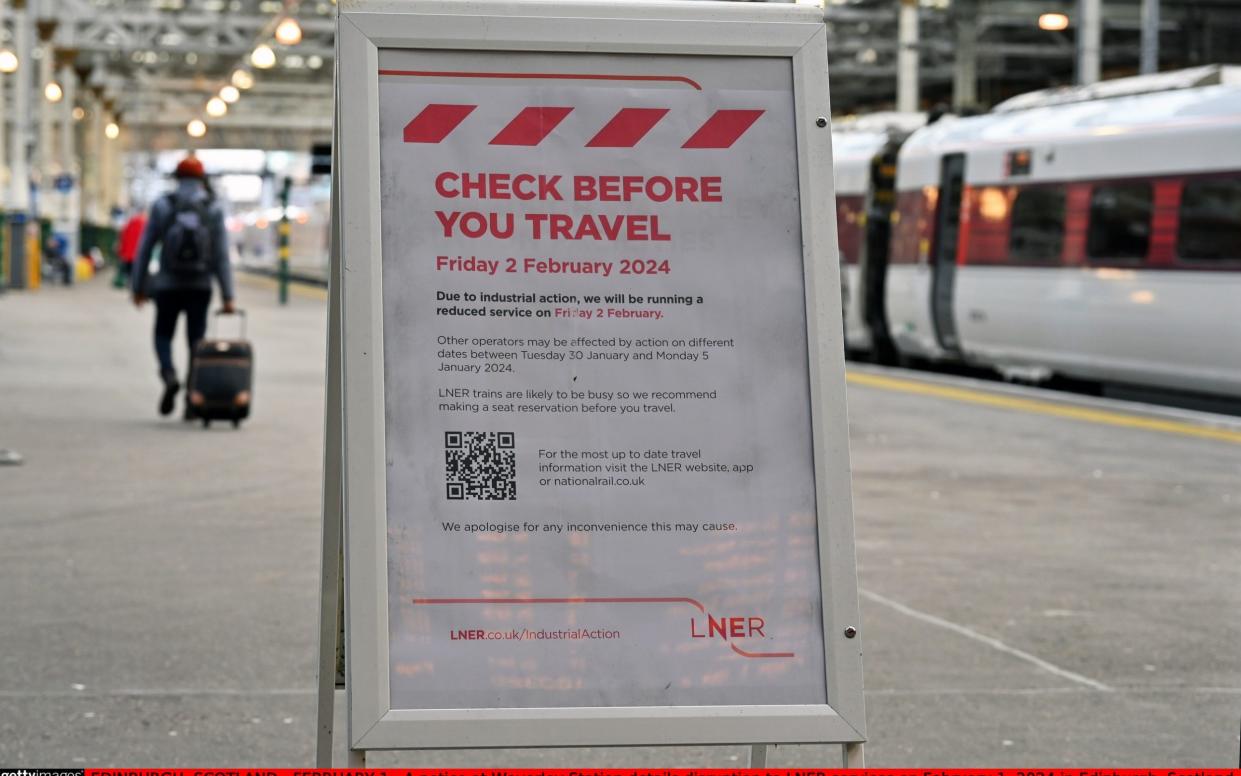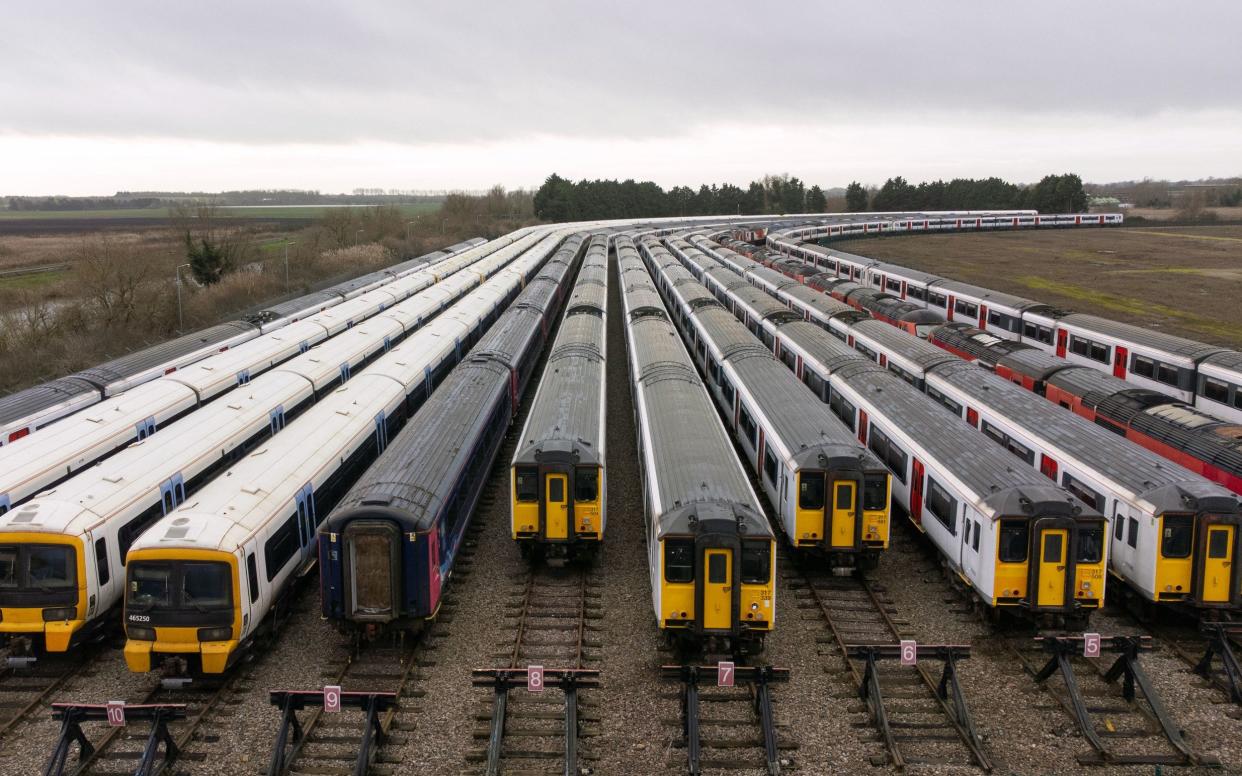Strikers are losing public support, admits rail baron Whelan

Public support for train drivers’ strikes is ebbing away, the secretary of the Aslef trade union has admitted.
Mick Whelan, general secretary of the train drivers’ union, said that support among the general public for industrial action by train drivers had dropped by a third.
“At one point we had 75 per cent of public approval. Now it’s down to just over 50,” he told reporters in London.
“We’ve never actually experienced, until now, a transport dispute where we have public approval,” added the 64-year-old, who took up his post in 2011.
Mr Whelan’s admission comes during a bitter dispute between Aslef members and 16 train companies around the country.
Industrial action has been running for almost two years, causing misery for rail passengers
and pushing travellers away from the railways.

Other rail unions, including the RMT and the Transport Salaried Staffs’ Association, have settled pay disputes with the Government, leaving Aslef as the only holdout.
Aslef members say they have not had a pay rise for two years, while the Government says Aslef is refusing to put an offer to its members that would see drivers’ average salaries rise to £65,000.
Mr Whelan said that his members had recently voted to continue striking, adding that union rules prevent its bosses from letting members vote on a pay deal that its leaders do not endorse.
“We’re not the villains of this piece,” he said. “We’re the people that actually don’t want to be out on strike. People don’t want to be losing money.”
Claims by the Aslef secretary that his union’s ongoing strikes are still backed by the public despite waning support are cast into doubt by recent opinion polling.

A survey by Ipsos revealed that just one in five Britons think rail services can be relied upon, while just under two-thirds of 2,000 adults thought strikes were contributing towards the poor quality of rail services.
Passenger numbers, meanwhile, remain stubbornly below their 2019 level of 1.7 billion journeys. Last year they languished at just 1.4 billion journeys.
Officials have accused the strikers of pushing people off the railways. The most recent Aslef strike days in January and February coincided with a Government-backed ticket discounting initiative called the Great British Rail Sale.
Just half of the 1.2 million available tickets were sold, with rail tsar Conrad Bailey telling Parliament’s Transport Select Committee in February that strikes were to blame for low sales.
Attempts to break the strikes through new legislation have largely failed. Although the Government passed so-called Minimum Service Levels (MSL) laws last year to let employers force strikers back to work, they have been furiously resisted by Aslef.
Punitive
Speaking to the press, Mr Whelan said the MSL laws were intended to be “punitive” and to act as a trap for the Government to “destroy” his union.
Highlighting the complexity of trade union laws and the rules on correctly calling strike ballots, the Aslef secretary said: “If we get it wrong, the damages are a million pounds a day.
“With 16 different companies, you don’t have to be a genius to work out if we get any of this wrong we’ll be in the High Court. And it’s about sequestering your funds, about destroying the movement. It’s about taking away the voice of the people I represent.”
During his wide-ranging conversation with the press, the union boss also hit out at the private sector involvement in the running of the railways.
Guaranteed return
Echoing Labour’s calls for the state to re-take full control of the trains, the Aslef secretary condemned the 2 per cent profit margin typically taken by owners of train companies.
“Two per cent on billions is in a guaranteed market, where you’re being funded and subsidised to operate within it before you start. It is a model that most other businesses would love; a guaranteed return on investment,” said Mr Whelan.
Just one of the UK’s 20 train companies, Greater Anglia, made a financial surplus last year. The rest of the passenger rail sector is propped up by £12 billion in subsidies, while income from passengers totalled £9.2 billion.
One senior rail executive recently told The Telegraph that his company’s operations added between £500,000 and £1 million a year to its parent company’s profits, which are measured in the hundreds of millions of pounds.
The Government says it has spent more than £100 billion on the rail network since 2010, and that state-owned infrastructure company Network Rail will receive £44.1 billion over the next five years.


